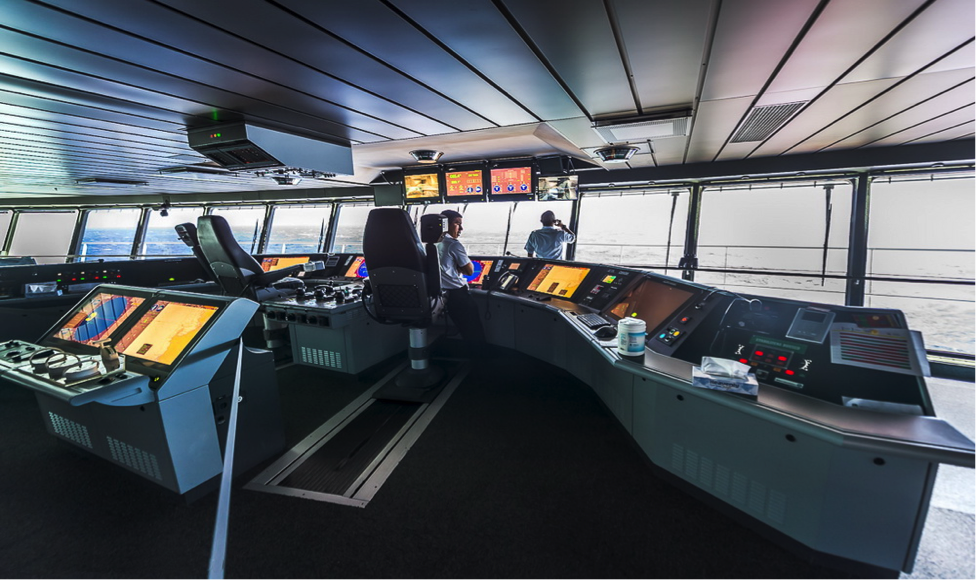Blog Post
Top Trends in Maritime Navigation Equipment for 2025
Posted By: Harsh Bamnolia
Posted On : 20-Dec-2024

Meaning of Maritime Navigation Equipment
Maritime navigation equipment encompasses a range of tools and technologies designed to assist ships in safe and accurate navigation.
These devices help determine a ship's position, direction, and speed while ensuring efficient and safe travel across oceans.
With technological advancements, maritime navigation equipment has become more sophisticated, enabling vessels to navigate challenging maritime environments easily.
Marinetech Safety & Shipping Corporation offers cutting-edge maritime navigation equipment, helping vessels stay ahead in terms of safety and operational efficiency.
Learn more at https://marinetechss.com/supplies/gmdss-equipment.
Top Trends in Maritime Navigation Equipment for 2025
As the maritime industry evolves, navigation equipment trends continue to transform with new technological advancements.
Here are the top trends expected to dominate maritime navigation equipment in 2025:
1. Enhanced Satellite Navigation Systems
What to Expect: Advanced GPS and GNSS technologies will dominate, offering more precise location tracking with enhanced accuracy. Multi-constellation navigation systems will provide uninterrupted global coverage.
Why It Matters: Vessels will benefit from faster route planning and reduced navigation errors. This will enhance ship safety and fuel efficiency.
2. Artificial Intelligence and Automation Integration
What to Expect: Artificial Intelligence (AI) and automation will be integrated into navigation systems, allowing predictive route planning, real-time data analysis, and autonomous vessel operations.
Why It Matters: AI-powered navigation will reduce human error, optimize routes, and enable automated decision-making for better vessel control.
3. Advanced RADAR and SONAR Technologies
What to Expect: Upgraded RADAR and SONAR systems will offer higher-resolution imaging, enhanced object detection, and weather tracking capabilities.
Why It Matters: Enhanced detection systems will improve situational awareness, collision prevention, and maritime surveillance.
4. Integration of IoT (Internet of Things)
What to Expect: IoT-enabled navigation systems will connect various onboard devices, allowing seamless data sharing and remote monitoring.
Why It Matters: Real-time system updates and predictive maintenance will enhance operational efficiency and reduce downtime.
5. Smart Bridge Technology
What to Expect: Smart bridge systems will integrate navigation tools into a single interface, offering real-time ship monitoring, navigation assistance, and automated alerts.
Why It Matters: A centralized system will ensure efficient navigation, route adjustments, and quick emergency responses.
6. Cybersecurity-Enhanced Navigation Systems
What to Expect: Cybersecurity protocols will be strengthened to protect navigation systems from potential cyberattacks and data breaches.
Why It Matters: Securing navigational data will prevent unauthorized access, ensuring safe and uninterrupted ship operations.
7. Digital Twins for Navigation Simulation
What to Expect: Digital twin technology will enable the creation of virtual ship models for navigation simulations and route testing before real-time voyages.
Why It Matters: Simulated routes will reduce risks, improve route planning, and enhance training for ship crews.
8. Smart Fleet Management Platforms
What to Expect: Cloud-based fleet management platforms will offer real-time tracking, navigation updates, and vessel performance analysis.
Why It Matters: Fleet operators will benefit from centralized monitoring, improved decision-making, and reduced operational costs.
9. Integration of Augmented Reality (AR)
What to Expect: AR technology will overlay navigational data onto live camera views, assisting in ship navigation, docking, and hazard detection.
Why It Matters: Visual assistance will improve situational awareness, reduce accidents, and enhance navigation precision.
10. Next-Generation GMDSS Systems
What to Expect: Advanced Global Maritime Distress and Safety System (GMDSS) radios will offer improved communication capabilities, real-time distress signal monitoring, and automated emergency response functions.
Why It Matters: Enhanced communication tools will reduce response times during emergencies, ensuring crew safety and operational continuity.
Reliable Maritime Navigation Equipment by Marinetech
Marinetech Safety & Shipping Corporation offers a wide range of cutting-edge maritime navigation equipment tailored to the latest industry standards.
Here are some of the advanced products available:
1. GPS (Global Positioning System)
Use: Provides real-time positioning, route planning, and precise location tracking.
Why It’s Important: Reduces navigation errors and improves fuel efficiency by optimizing travel routes.
2. AIS (Automatic Identification System)
Use: Tracks vessel movements, preventing collisions and assisting maritime authorities with vessel monitoring.
Why It’s Important: Enhances situational awareness and ensures safer voyage operations.
3. RADAR (Radio Detection and Ranging)
Use: Detects objects, vessels, and land masses, especially in low-visibility conditions.
Why It’s Important: Prevents collisions and ensures safe navigation during extreme weather conditions.
4. VDR (Voyage Data Recorder)
Use: Records key navigational data, aiding in post-accident investigations and operational analysis.
Why It’s Important: Helps improve safety protocols and ensure compliance with international maritime regulations.
5. GMDSS Radio
Use: Enables global maritime communication and distress signaling.
Why It’s Important: Provides a reliable communication channel during emergencies, ensuring prompt rescue responses.
6. MF/HF & VHF/UHF Radios
Use: Ensures real-time communication over short and long distances.
Why It’s Important: Supports vessel-to-shore communication and coordination with other ships.
7. AIS EPIRB & AIS SART
Use: Sends emergency signals and distress alerts, helping search and rescue teams locate vessels quickly.
Why It’s Important: Acts as a vital safety device during maritime emergencies.
8. NAXTEX Receiver
Use: Receives weather updates, maritime alerts, and navigational warnings.
Why It’s Important: Keeps vessels informed of weather conditions and maritime safety updates.
Why Choose Marinetech for Navigation Equipment?
Certified Products: All products are IMO-approved and certified by leading industry organizations.
Advanced Technology: Stay ahead with cutting-edge navigation equipment.
Reliable Support: Comprehensive customer service for installation, maintenance, and troubleshooting.
Global Supply: Marinetech serves vessels worldwide, ensuring seamless maritime operations.
Conclusion
The maritime navigation equipment industry is rapidly evolving, with technological advancements reshaping the way ships navigate oceans.
Staying ahead with advanced tools ensures safer voyages, reduced operational costs, and enhanced onboard efficiency.
Equip your vessel with industry-leading navigation equipment from Marinetech Safety & Shipping Corporation.
Visit https://marinetechss.com/supplies/gmdss-equipment today to explore the best navigation solutions for your vessel.